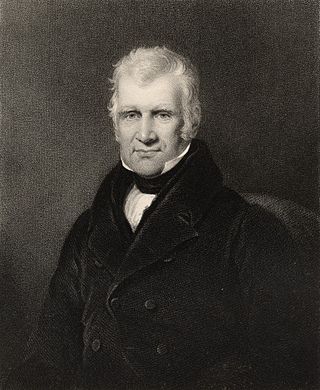Early life and education
Nathan Alcock was born at Aston, near Runcorn, Cheshire, England, the second son of David Alcock and his wife Mary née Breck. [1] David Alcock was a descendant of Bishop John Alcock, the founder of Jesus College, Cambridge. [2] He was educated initially by his parents and then at a local school [3] but he left this school, probably because of his dislike of the schoolmaster. [4] He promised his father that he would qualify in medicine in return for a small estate in Wirral, Cheshire, which was worth about £50 a year. [2] He went to medical school at Edinburgh, and then to Leiden where he was taught by Boerhaave and his contemporaries, Gaubius, Albinus, and Gravesand. [4] He graduated M.D. in 1737. [2]
Medical career
He returned to England and went to Oxford University. Here he found that one of the professors in the medical faculty gave no lectures and the other did not reside there. He therefore began to give unauthorised lectures in anatomy and chemistry. This led to opposition from the professors who argued that his theological opinions were unsound. However his lectures were popular with the students and he was supported by eminent people including William Blackstone and Robert Lowth (who was later Bishop of London). In 1741 he was granted the degree of M.A. and was incorporated from Jesus College. [2] He graduated B.M. in 1744, and M.D. in 1749. Also in 1749 he was elected a Fellow of the Royal Society and in 1754 was made Fellow of the Royal College of Physicians, London. [4]
He built up a large practice in Oxford and became very wealthy. [2] However, possibly because of ill health, [3] or following the death of a woman he intended to marry, [4] he returned to Runcorn. Here he built up a practice as large as his practice had been in Oxford. [2] He died from a stroke in Runcorn in 1779 and was buried in the parish church there. [3]
Politically he was a whig and theologically he was a follower of Bishop Hoadly. His Leiden thesis was on pneumonia. He published nothing during his lifetime but his brother Thomas, vicar of Runcorn, edited and published his The Rise of Mahomet, Accounted for on Natural and Civil Principles in 1796. [4] Also after Nathan's death, in 1780, Thomas Alcock published his biography entitled Some Memoirs of the Life of Dr. Nathan Alcock. [2]
John Bampton was an English churchman who founded the Bampton Lectures at the University of Oxford.

Runcorn is an industrial town and cargo port in the Borough of Halton, Cheshire, England. Its population in 2021 was 62,100. Runcorn is on the southern bank of the River Mersey, where the estuary narrows to form the Runcorn Gap.

The Barony of Halton, in Cheshire, England, comprised a succession of 15 barons and hereditary Constables of Chester under the overlordship of the Earl of Chester. It was not an English feudal barony granted by the king but a separate class of barony within the County Palatine of Chester.
Thomas Alcock was a clergyman in the Church of England, a pluralist and an author.
Sir John Chesshyre was an English lawyer who rose to the position of king's first serjeant.

Henry Clutterbuck M.D. (1767–1856) was an English medical writer.

Samuel Peploe was Bishop of Chester from 1726 to 1752.

William Worthington was an Anglican priest and theological writer.
Nathan Paget (1615–1679) was an English physician, active during the English Civil War, under the Commonwealth and the Protectorate, and after the Restoration. Despite being a mainstay of a generally conservative profession, he was interested in the experimental methods of the Enlightenment. Although from a strongly Presbyterian background, he seems to have developed radical political and religious sympathies.
Henry Atkins (1558–1635) was an English physician.
William Rutty M.D. (1687–1730) was an English physician.
Robert Heath was an English army officer, mathematician, and periodical editor.
Michael Ryan (1800–1840) was a British physician and author,

William Hawes was an English physician and philanthropist, and one of the founders of the Royal Humane Society. He worked to spread the practice of resuscitation, and to relieve poverty in East London.

Bernard Connor or O'Connor M.D. was an Irish physician and historian.

Foote Gower (1725/6–1780) was an English cleric, academic and antiquarian.
Sir Francis Milman, 1st Baronet, FRCP, was an English physician.
Richard Budd was a British physician.

The Constable of Chester was a mediaeval hereditary office held by the Barons of Halton. The functions of the Constable are unclear, possibly they related to the custody of Chester Castle, as was the main function of most mediaeval constables, but Sanders (1960) says the office-holder was constable for the entire County Palatine.
This page is based on this
Wikipedia article Text is available under the
CC BY-SA 4.0 license; additional terms may apply.
Images, videos and audio are available under their respective licenses.








